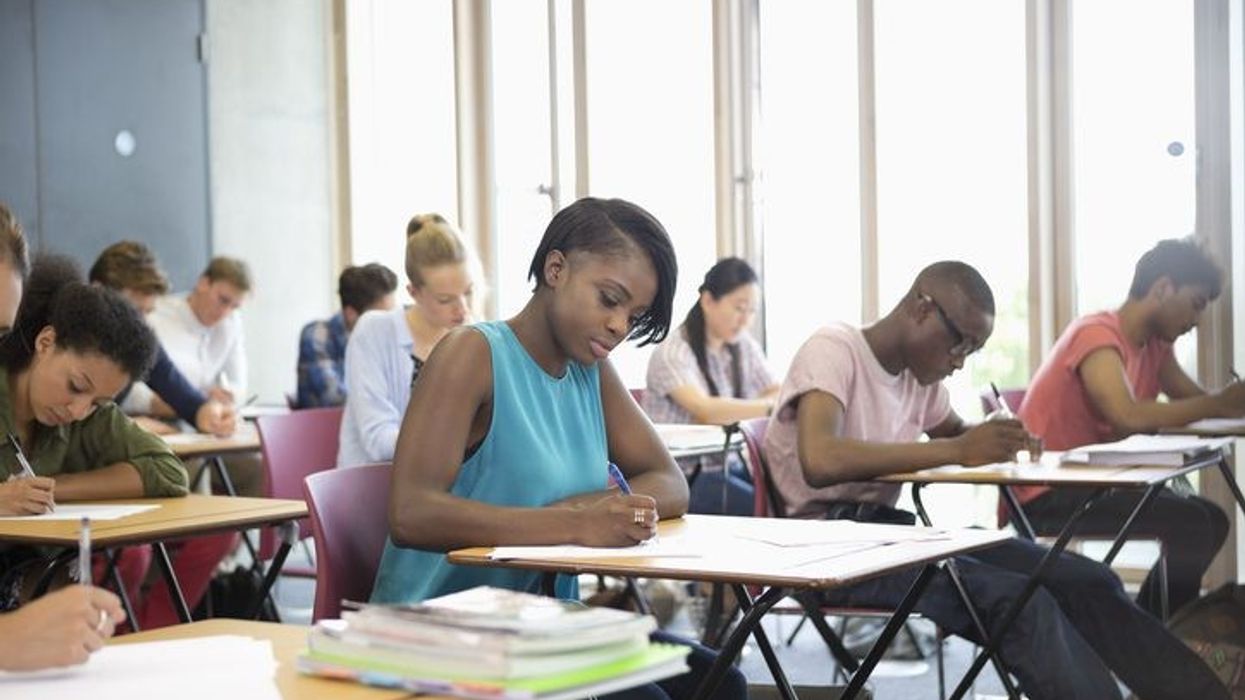When 22-year-old American student Amelia Dias completed her final year of studying international relations and law at the University of Edinburgh this summer, she received an apology letter instead of a degree certificate.
The letter explained that due to Edinburgh's participation in the staff boycott of marking and assessment, some of her completed assignments had not been graded, and as a result, they could not award her a degree.
Consequently, Dias is unable to apply for the graduate visa she needs to remain in the country, despite having paid approximately £80,000 ($102,792) in tuition fees. This situation has cast uncertainty over the sales job she was scheduled to begin in London next month.
Dias is one of the many students affected by the months-long assessment boycott initiated by staff across British universities due to a dispute over pay and working conditions.
The boycott has led to disruptions in classes, exams, and now graduations, leaving students in a state of uncertainty.
With no clear resolution in sight, many students like Dias are unable to accept job offers or pursue postgraduate studies. For international students, whose visas are nearing expiration, the situation becomes even more pressing as they may have to return home.
As a student from Florida, Dias expressed her concern about the precariousness of her immigration status. While she has the option to extend her existing visa until January, she remains uncertain if that will be sufficient for her prospective employer.
"I did what was necessary to obtain my degree. I wrote my dissertation within the deadline period, I never turned in a late assignment," she added. "I had given a lot to this university ... I never thought that it would get to this."
A spokesperson from the Home Office said international students without results can request a letter of confirmation from their sponsor or return to their home country and apply for another student visa.
But fellow American Anna Hendricks, who was due to start a postgraduate law course in the UK in September, said her future institution had not accepted a letter from the University of Edinburgh because it lacked details.
"It's likely that as it stands, I will have to leave the country by Sept. 30," she said.
The University of Edinburgh said 27% of final year students had not received their degree at the time of graduation.
"We regret that we have not been able to shield our students from the impact of this national dispute, and we are deeply sorry about the continued uncertainty that some of them face over their immediate futures," it said in a statement.
Six-month boycott
Hundreds of thousands of workers in Britain in sectors from healthcare to transport have taken strike action over the last year as pay awards failed to keep pace with inflation that hit a 41-year high of 11.1% in October. Inflation in June was 7.9%.
The Universities and Colleges Employers Association, which negotiates pay on behalf of 144 higher education institutions, offered a 5-8% rise. That was partially implemented in February, with the rest due in August.
But the University and College Union (UCU), which represents more than 120,000 staff, is still staging a boycott from April to the end of September over what it says is a 25% pay cut since 2009.
With its members refusing to grade students' work in the key assessment period for universities, the institutions for which they work cannot award some degrees.
Edinburgh has estimated that if the boycott ends as planned, students are likely to be told the outcome of their degrees in November, although some could receive their marks earlier.
The National Union of Students supports the UCU's demands, and many students have worn UCU sashes or carried banners to graduation ceremonies that have gone ahead despite the lack of a certificate.
Scottish student Ailsa Watt, who wore a 'pay your staff' sash, blamed the University of Edinburgh for not finding a solution. Watt, who studied Spanish and Chinese, faces not being able to take up a teaching job in Shanghai without her degree certificate.
"The University of Edinburgh has made me regret coming to university at all," she said.
More than 140 universities have been impacted, including some of the most internationally renowned.
Last month the University of Cambridge said more than half of the approximately 4,500 undergraduate students who were due to graduate would be affected.
'We're paying them so much'
University students in Britain pay a tuition fee, which for most domestic students has been capped at 9,250 pounds a year since 2017. The Scottish government pays the fees of Scottish students attending Scottish universities.
International students pay much more, providing a vital source of income. According to the British Council, international undergraduate tuition fees average around 22,200 pounds per year and can be as high as 38,000 pounds a year.
The longer the dispute drags on, the higher the potential risk to the international reputation of Britain's universities - three of which are in the top ten in the world, according to the Times Higher Education 2023 rankings.
The government has largely stayed silent, with education minister Gillian Keegan this month saying the dispute was between universities and their lecturers, although she urged a resolution.
There were nearly 680,000 international students studying in the UK in 2021-22, data from the Higher Education Statistics Agency shows, with the year to September 2022 seeing the highest annual number of study visas granted on record.
Research published by Universities UK International in May found the 2021/22 intake of international students contributed 41.9 billion pounds to the UK economy.
"Every year, universities in the UK are depending more and more on the finances of international students," said Hendricks. "We're paying them so much, we want to know where our money's going."
(Reuters)




